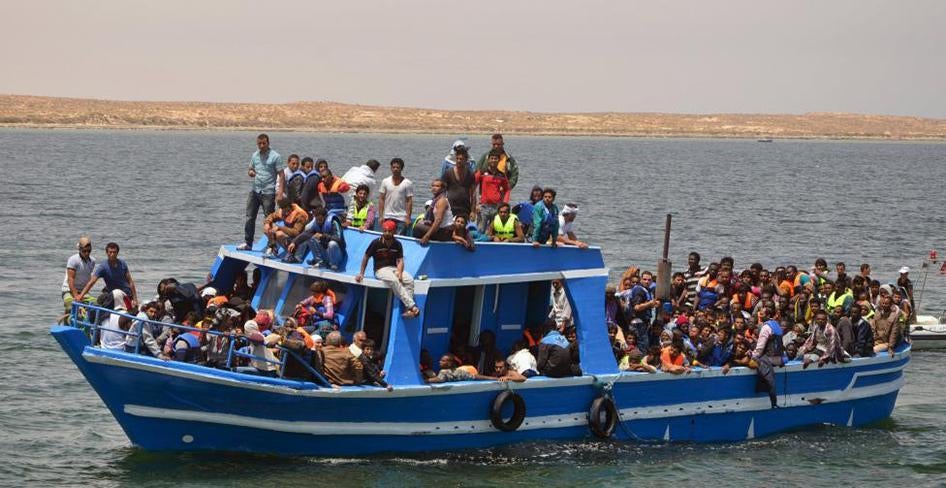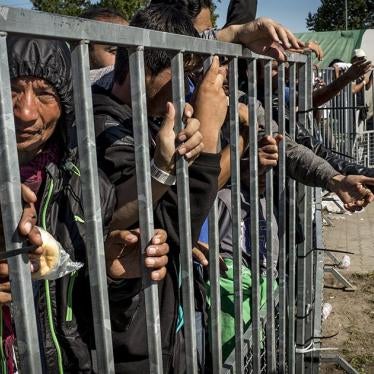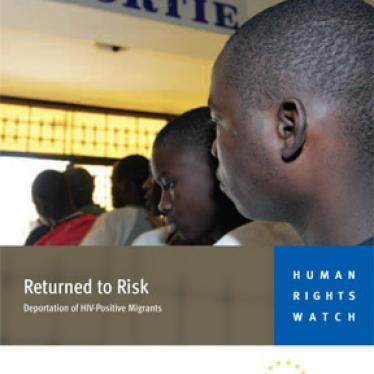Despite sensational headlines, smuggling and trafficking of persons are not synonymous. Smugglers help willing clients who are looking to cross borders undetected for payment. Traffickers move people against their will or by deceiving them, and exploit them.
When major media use these terms incorrectly or interchangeably, they blur the circumstances and choices that refugees and migrants make and create flawed perceptions that result in unsuitable responses to irregular migration.
If the common perception is that everyone taking to boats on the Mediterranean is a trafficking victim, the European response will not get at the roots of the crises that cause them to take this chance – conflict, human rights abuse, and economic destitution. In reality, the overwhelming majority have not been trafficked, but instead have paid smugglers to facilitate their perilous voyages to escape conflict, persecution, serious human rights violations, or other abysmal conditions in their home countries.
By calling asylum seekers and migrants victims of trafficking, governments can claim that law enforcement is more important than ensuring asylum seekers access and protection from persecution. Such language enables the European Union to present plans to destroy “traffickers’” boats as a humanitarian act aimed at saving lives, when in reality the primary objective is to prevent people from migrating irregularly across their borders.
A simplification in the other direction can be just as harmful: if “smuggling” is the only term on the table, people who are deceived and exploited by traffickers will not be recognized as victims of human rights abuse and provided with physical, psychological, and social help for recovery.
Whether traveling by choice or unwillingly, much more is usually involved and at stake for the people smugglers and traffickers transport than the immediate question of crossing a border illegally. Those who turn to smugglers are often the victims of conflict and human rights abuse in their home countries with no safe and lawful path to protection. Those who fall into the hands of traffickers, whatever the reason they left, need protection from the criminals who prey upon them. Each group is in desperate need of help – but the circumstances, needs, and rights of each group are distinct.
But in neither of those cases – people seeking asylum or trafficking victims – would it be right to punish the irregular migrants for their illegal entry. In both cases, prosecution of criminals who smuggle people or traffic in human lives is an appropriate law enforcement response, though not necessarily a solution to the broader, underlying problems that make such trade possible.
These terms are the lenses through which the current migration crisis is seen. For problems to be properly identified and solutions appropriately considered, the media and politicians who use the terms, and the general public, need to be more careful to speak clearly and accurately – the consequences of not doing so may result in failure to protect already vulnerable people.








